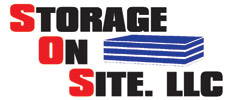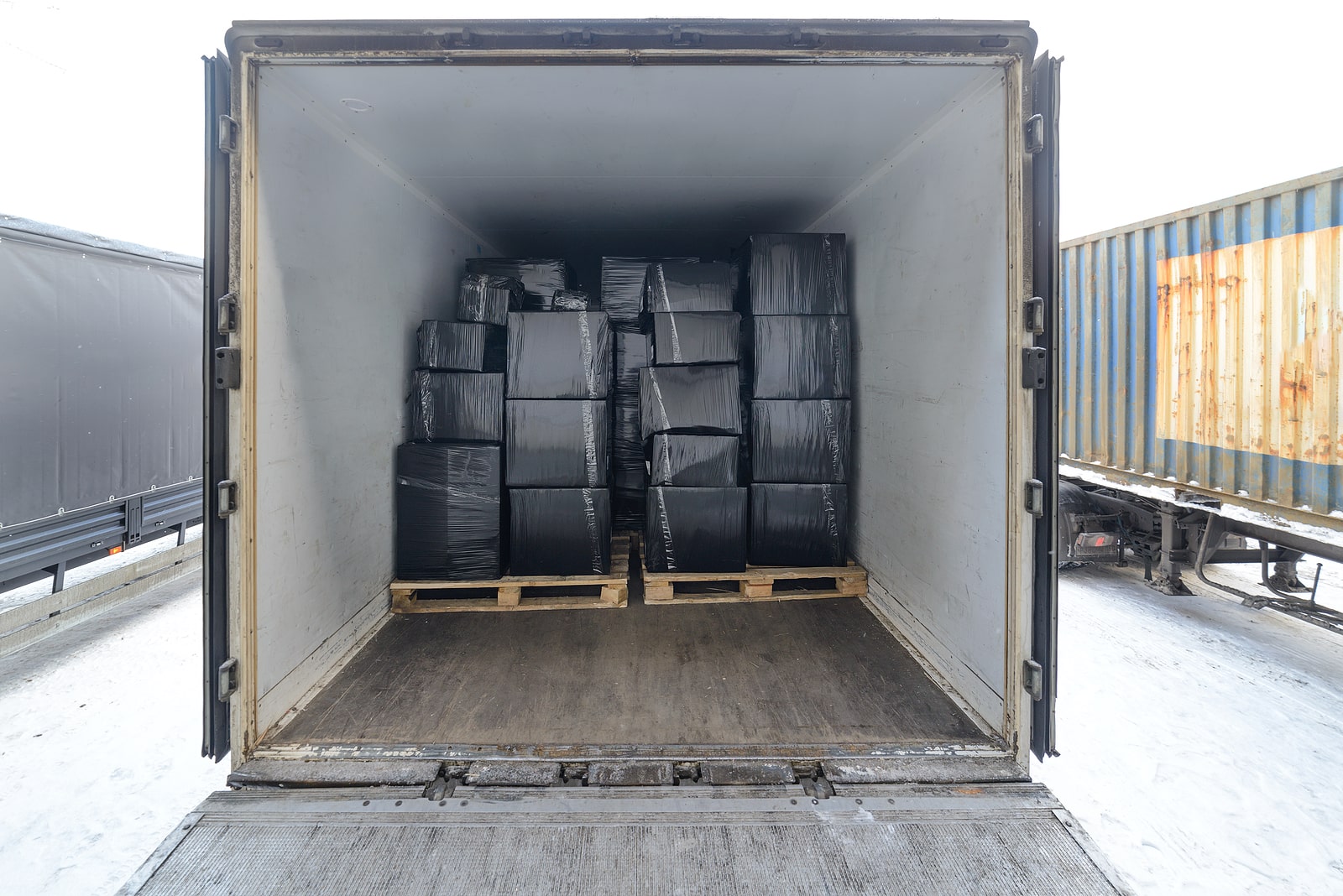Regular maintenance is one of the most important ways to ensure your storage trailer remains safe, functional, and valuable for years to come. Small issues that go unchecked can quickly turn into major repairs, leading to higher costs and potential safety risks on the road. A well-maintained trailer will last longer, perform more reliably, and retain more of its resale value over time.
This guide is designed for trailer owners and renters. Use it as a practical reference for pre-use inspections, periodic checks, and seasonal maintenance to help extend the life of your equipment.
Pre-Use / Before Every Use Checklist
Before every trip or use, take a few minutes to run through these essential checks. They help prevent breakdowns, accidents, and expensive damage.
Tires
- Check tire pressure (cold) against the manufacturer’s specifications. Under- or over-inflated tires can reduce fuel efficiency and increase blowout risk. National Highway Traffic Safety Administration (NHTSA) recommends monthly pressure checks.
- Inspect tire sidewalls for cracks, bulges, or cuts.
- Ensure lug nuts are torqued correctly and recheck them after the first 10, 20, and 50 miles of towing.
Lights and Electrical
- Test all brake lights, turn signals, and running lights before hitting the road.
- Inspect wiring for corrosion, chafing, or loose connectors.
- Apply dielectric grease to connectors if needed to prevent moisture intrusion and corrosion.
Hitch, Coupler, and Safety Chains
- Verify that the coupler latches and locking mechanism work properly.
- Lubricate the coupler and hitch ball for smooth operation.
- Check the safety chains for proper length, secure attachment, and good condition.
Brakes and Breakaway System
- Test the trailer brake function manually or through a brake controller.
- Inspect brake drums, pads, shoes, and linings for wear.
- Ensure the breakaway battery and cable are in good shape if applicable.
Bearings and Axles
- Check for any play, noise, or binding when spinning the wheels.
- Look for grease leakage at hub seals, which may indicate a failing seal.
Structural and Exterior
- Walk around the trailer and look for cracks, dents, or loose panels.
- Inspect doors, ramps, locks, and hinges to make sure they open and close smoothly.
Periodic / Monthly Checks
These checks are more detailed and should be done monthly or every few hundred miles, depending on how often you use your trailer.
Clean and Inspect Undercarriage
- Wash off salt, mud, and debris, especially after winter, to prevent corrosion. Federal Highway Administration (FHWA) notes that road salt can accelerate structural damage.
- Inspect the frame, crossmembers, and welds for cracks or rust.
Fasteners and Hardware
- Tighten bolts, nuts, U-bolts, and suspension hardware.
- Apply thread-locking compound on critical fasteners if they tend to loosen over time.
Suspension and Leaf Springs
- Inspect for cracks, broken leaves, or worn bushings.
- Tighten or replace worn U-bolts as needed.
Door, Ramp, and Interior
- Lubricate hinges, slides, and locks.
- Inspect floorboards for wear, rot, or separation from the frame.
- Check tie-downs, rails, and D-rings for damage.
Electrical System
- Check fuses, junctions, and continuity throughout the system.
- Look for signs of moisture intrusion or corrosion in connectors.
Seasonal and Annual Checks
At least once a year, or before and after heavy use seasons, plan a more thorough maintenance session.
Repack Wheel Bearings and Grease Hubs
- Remove, clean, and inspect bearings and races.
- Apply fresh, high-quality grease rated for trailer use.
- Adjust endplay to manufacturer specifications before reassembly. RVIA Maintenance Guidelines recommend annual bearing repacking.
Brake System Overhaul
- Disassemble and inspect brakes. Replace worn parts if necessary.
- Bleed hydraulic brakes and check fluid levels and lines.
- Inspect electric brake magnets and calibrate the brake controller.
Structural and Frame Inspection
- Look for signs of fatigue, cracks, or corrosion in the frame and welds.
- Touch up paint or apply a rust inhibitor to protect exposed metal.
Storage Preparation
- Inflate tires to the maximum rated pressure before storing for long periods.
- Park the trailer on level ground or lift the wheels off the ground with blocks.
- Cover or shelter the trailer to reduce exposure to UV light and moisture. EPA notes that UV damage accelerates material degradation.
- Disconnect batteries to prevent drain or corrosion.
Inspect Seals and Weatherstripping
- Replace any cracked or worn gaskets around doors and vents.
- Check roof seals and seams for leaks.
Professional Inspection
- Consider having a professional inspect the trailer for alignment, welding integrity, and brake performance periodically. Certified technicians can identify issues you might miss.
- Advanced Best Practices
Use a Maintenance Log
- Keep a written or digital log of maintenance dates, performed work, and parts replaced. This documentation supports resale value and helps with long-term planning.
Load Management
- Do not exceed the Gross Vehicle Weight Rating (GVWR). Overloading increases stress on the frame, axles, and tires.
- Distribute cargo evenly to reduce wear on the suspension and prevent handling issues.
Use Quality Parts and Materials
- Always use high-quality, rated grease, fasteners, bearings, and seals designed for trailer loads. SAE International provides standards for automotive and trailer components.
Address Issues Immediately
- Fix cracks, leaks, or loose parts as soon as they are noticed. Ignoring small issues can lead to larger, more expensive problems later.
Anti-Corrosion Measures
- Apply rust inhibitors or protective coatings to exposed metal surfaces.
- Rinse the undercarriage after exposure to salt or chemicals.
- Sample Maintenance Schedule
| Interval | Tasks / Focus | Notes |
| Before every use | Tires, lights, hitch, brakes, bearings, structural walk-around | Quick safety checks |
| Monthly / every few hundred miles | Clean undercarriage, tighten fasteners, inspect suspension and interior | Preventive maintenance |
| Quarterly / seasonal | Minor lubrication, wiring check, retighten hardware | Adjust based on usage |
| Annually / end of season | Repack bearings, brake overhaul, frame inspection, storage prep | Deep maintenance |
| As needed | Repairs, part replacements, professional inspections | Address issues promptly |
Keep Your Storage Trailer in Top Shape with Storage On-Site
Whether you rely on a single storage trailer or manage a large fleet, regular maintenance is essential to keep your equipment safe, efficient, and ready for the road. At Storage On-Site, we provide high-quality storage trailers and containers throughout Indiana and the surrounding regions, and we are committed to helping customers get the most from their investment.
If you are looking to rent a storage trailer or buy a storage trailer, or if you want expert advice on trailer care and best practices, we are here to help.
Call Storage On-Site at (317) 358-0380 or contact us online to learn more about our storage solutions and maintenance support.
FAQs
Q: How often should I repack wheel bearings?
A: Every 12,000 miles or annually, whichever comes first. If you frequently haul heavy loads or drive in harsh conditions, more frequent repacking is recommended.
Q: Can I use regular grease or do I need a specific type?
A: Use a high-quality, high-temperature grease rated for wheel bearings and trailer use. Avoid low-grade all-purpose grease, which may break down under heat.
Q: What torque should I use on lug nuts and suspension bolts?
A: Always refer to the manufacturer’s specifications. Over-torqueing can damage studs, while under-torqueing can cause components to loosen.
Q: How should I store a trailer long-term?
A: Inflate tires fully, park on level ground (or lift the trailer off its tires), cover it or store it under shelter, disconnect batteries, and check periodically for moisture and pests.
Q: Is it worth paying for a professional inspection?
A: Routine checks can be done yourself, but professional inspections, especially for alignment, brake systems, and structural components, are valuable for identifying hidden issues.
Q: What are early warning signs of major issues?
- Uneven tire wear
- Vibrations or shimmying when towing
- Brake fading, squealing, or dragging
- Cracks or unusual rust on the frame or suspension
- Loose or missing hardware
- Electrical failures

